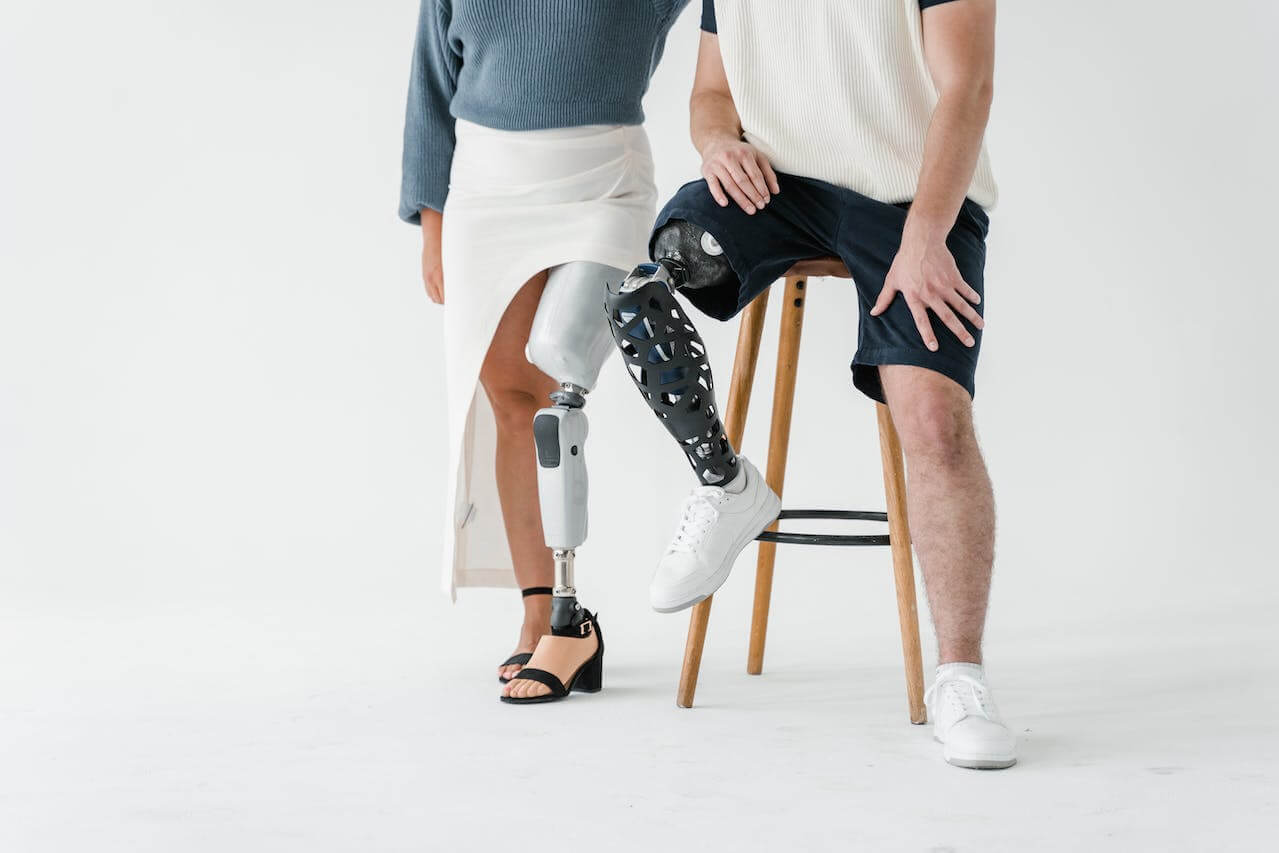Becoming a parent is a journey filled with joy, challenges, and countless unknowns. Now, imagine adding the unique perspective of navigating parenthood with the added dimension of limb loss. Parenting as an amputee brings its own set of triumphs and tribulations, blending the universal experiences of parenting with the distinctive challenges faced by those who have lost a limb. In this article, we’ll explore the stories of amputee parents, shedding light on their resilience, triumphs, and the lessons they’ve learned along the way.
Embracing Adaptability
For amputee parents, adaptability becomes a cornerstone of their parenting journey. From the early days of diaper changes to the chaos of toddlerhood, these parents find innovative ways to navigate daily tasks. Whether it’s mastering the art of one-handed baby-wrangling or using prosthetic limbs with precision, adaptability becomes a superpower in the realm of amputee parenting.
Meet Sarah: A Mother’s Adaptation

Sarah, a lower-limb amputee, shares her journey of adapting to parenthood after losing her leg in a car accident. “I had to learn how to change diapers using my prosthetic leg as a stabilizer. It was a trial-and-error process, but I soon discovered a rhythm that worked for both me and my baby,” she says with a warm smile. Sarah’s story reflects the resilience and creativity amputee parents bring to the table.
Addressing Curious Minds
Children are naturally curious, and they often ask questions about the world around them. Amputee parents find themselves addressing questions about their prosthetics or limb differences in ways that foster understanding and inclusivity. It becomes an opportunity to teach empathy, resilience, and the beauty of diversity.
Tom’s Tale: A Father’s Perspective
Tom, a father of two, lost his arm in a workplace accident. He shares, “My kids were curious about my prosthetic arm from the beginning. Instead of shying away from the conversation, I made it a point to explain in simple terms why Daddy’s arm looks different. Now, they see it as just a part of who I am, and it’s normalized for them.”
Building Resilience in Children
Amputee parents often become unintentional role models for resilience. By navigating life with a positive attitude and demonstrating the ability to overcome challenges, they instill a sense of resilience in their children. These parents emphasize the importance of focusing on abilities rather than limitations, fostering a mindset that embraces diversity and inclusivity.
The Balancing Act: Self-Care for Amputee Parents
Parenting is an all-encompassing journey, and amputee parents are no strangers to the delicate balancing act of caring for themselves while nurturing their children. Whether it’s finding adaptive ways to engage in physical activities or seeking emotional support from the amputee community, self-care becomes paramount in ensuring a healthy and fulfilling parenting experience.
Sarah’s Self-Care Ritual
“I make it a point to connect with other amputee parents regularly. Sharing experiences, tips, and even the humorous side of parenting with limb loss helps me feel understood and supported,” Sarah shares. “It’s crucial to recognize that self-care isn’t selfish; it’s a necessity for both you and your children.”
Celebrating Milestones, Big and Small
Parenting is a journey marked by milestones, and amputee parents celebrate these moments with an added layer of significance. From the first steps taken with a prosthetic limb to the emotional triumphs of watching their children grow, every milestone becomes a testament to the strength, resilience, and love that define the amputee parenting experience.
Looking Towards the Future
As the narrative of amputee parenting continues to unfold, it’s essential to foster a community that embraces diversity and challenges preconceived notions. The stories of amputee parents are stories of love, strength, and adaptability. By sharing these narratives, we contribute to a broader understanding of what it means to parent with one less limb and inspire a future where inclusivity and acceptance are at the forefront of the parenting journey, regardless of physical differences.
Conclusion
Parenting as an amputee is a testament to the human spirit’s capacity to adapt, thrive, and love unconditionally. Through stories of resilience, adaptability, and self-discovery, amputee parents offer insights that transcend the boundaries of physical differences. As we celebrate the diverse tapestry of parenthood, let’s continue to amplify the voices of amputee parents, recognizing and appreciating the strength they bring to the ever-evolving narrative of family life.


